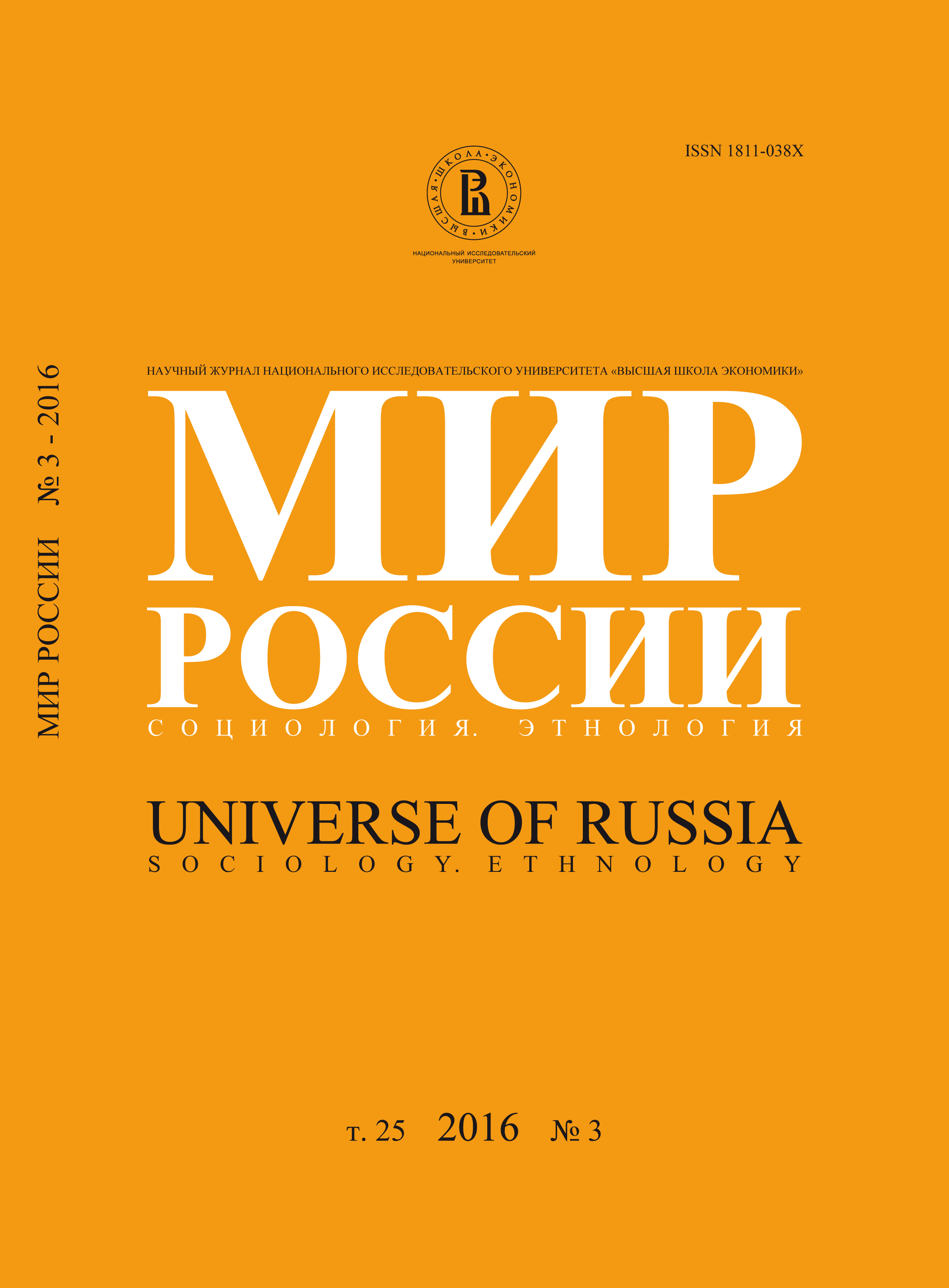Social Justice in the Scientific Debates 1990-2010s
Abstract
Irina Popova — PhD in Sociology, Senior Researcher, Institute of Sociology RAS; Leading Researcher, Higher School of Economics. Address: bld. 5, 24/35, Krzhizhanovskogo St., Moscow, 117218, Russian Federation. E-mail: irina_popova@list.ru
This article is a review of studies from different disciplinary traditions on social justice carried out in post-Soviet Russia. It shows that the concept of social justice is interdisciplinary in nature and that it is considered from different positions within various disciplines: philosophy, political science, sociology, history, legal studies and social psychology. The main issues which are singled out in this analysis are the concept of justice as a regulator of social relations and the issues of social justice from the perspectives of the market economy, law, and inter-ethnic relations. The discussion focuses on the prospects of the philosophical, methodological and interdisciplinary foundations of various theoretical models of social justice, (including the limitations of the ones belonging to the Russian tradition). It also focuses on the issues of market context and reform specificity vs social justice as the basis for integration and harmony, and the challenge of designing new models of social policy. We highlight the temporal change in the character of the related debates—since the 2000s they have become more focused on solving the practical problems of social regulation and on a more dedicated search for conceptual approaches to their solution. Finally, two major dimensions of these studies are distinguished. The first considers social justice as the ideological basis of socio-political regulation, the second treats it as a practical tool of social policy. There is still a gap between them, but at the same time in several social domains (such as law, labour and international relations) there is a tendency towards reaching a rational compromise between them.






